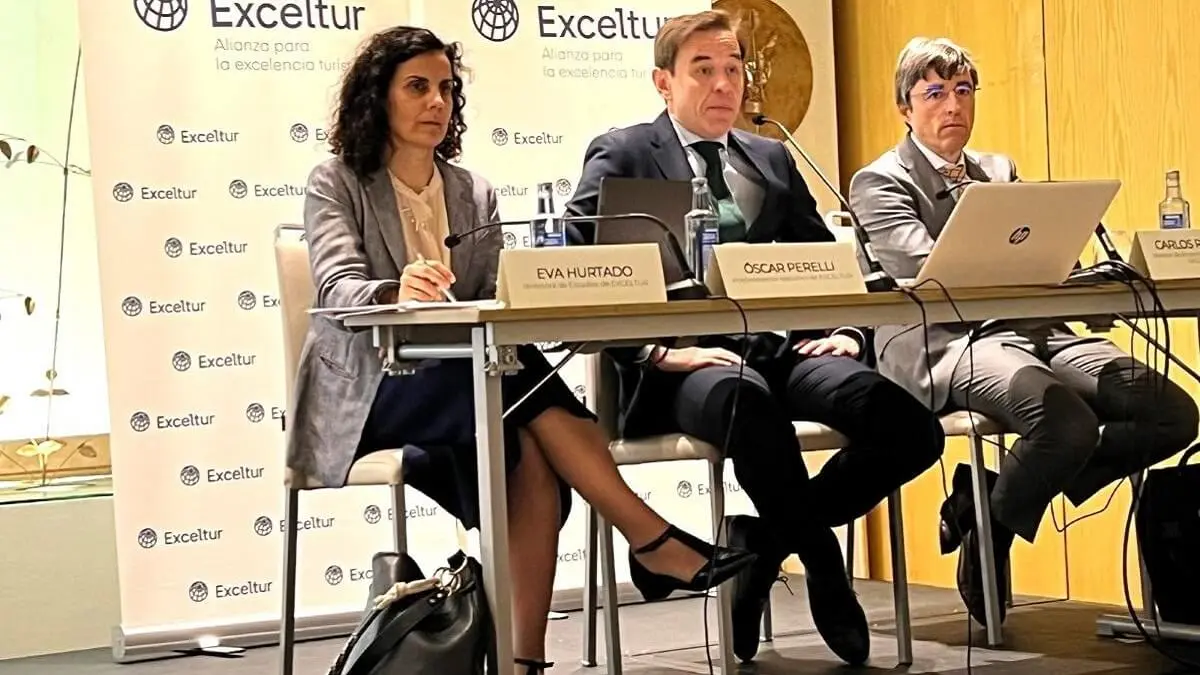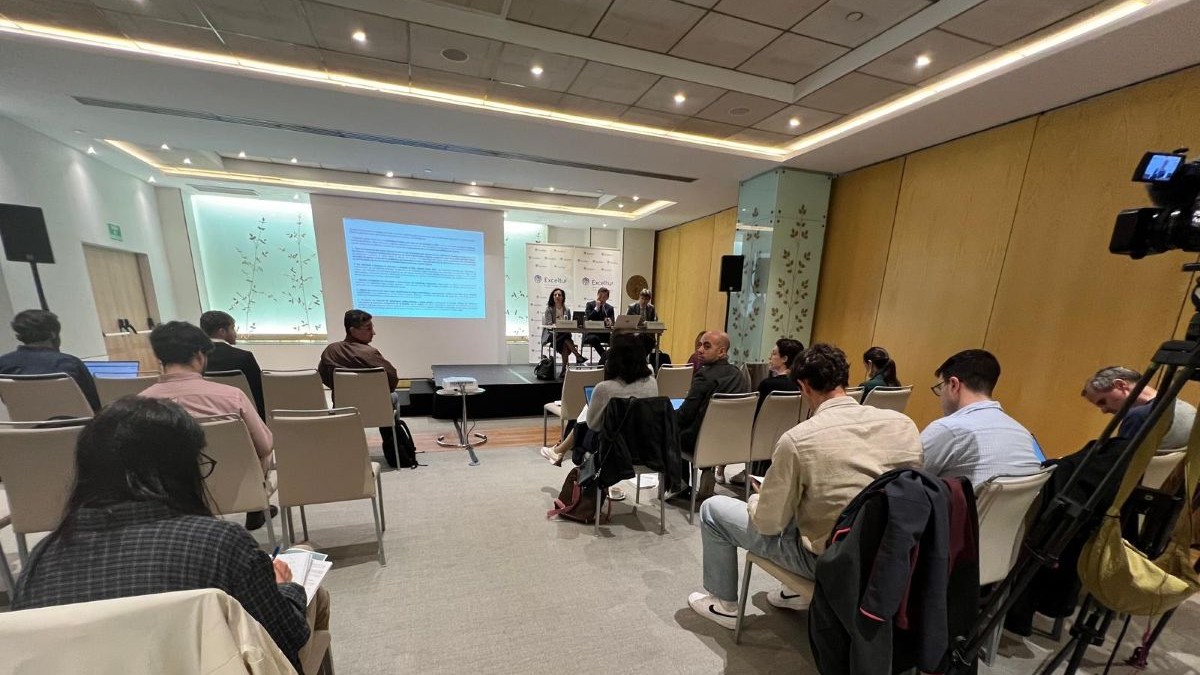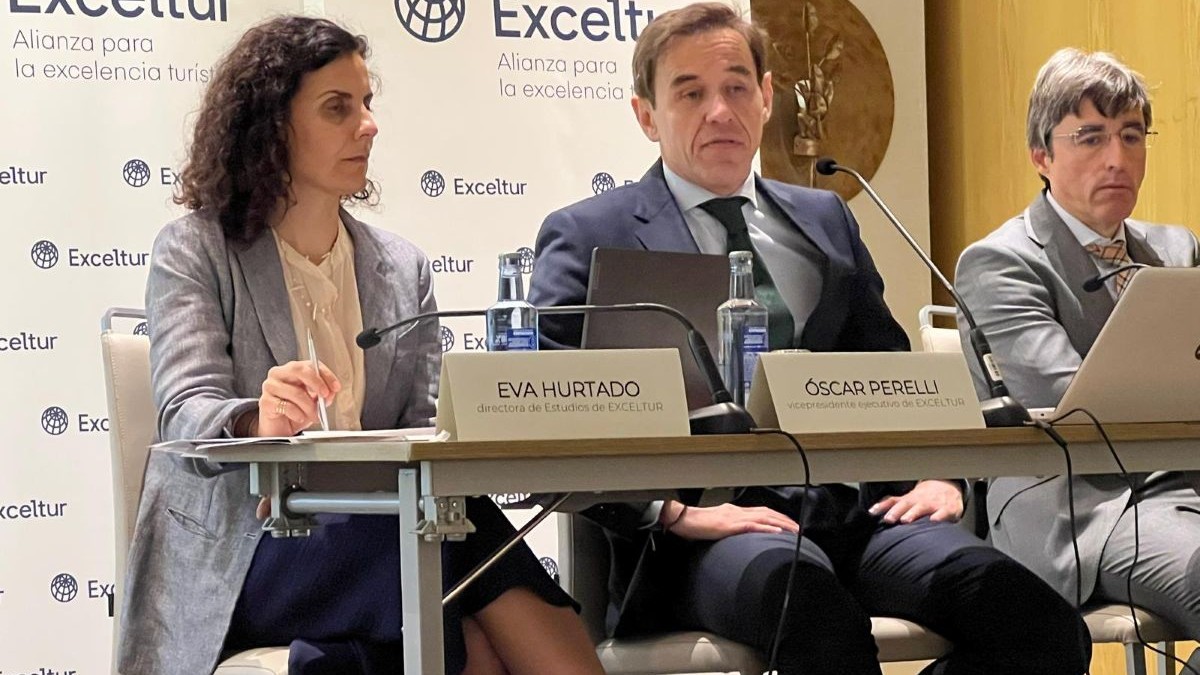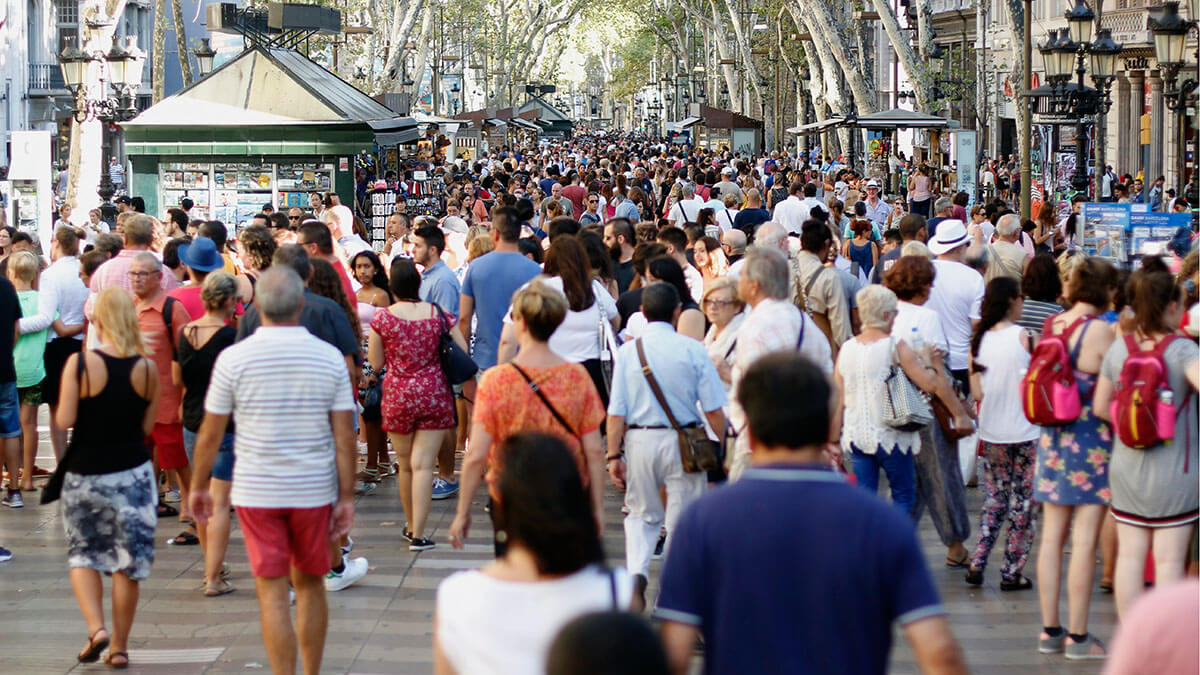Tourism grows by 3.2% in the first quarter and is optimistic for Easter

The tourism sector ‘maintained its strength’ in the first quarter of the year with growth of 3.2% compared to the same period in 2024, and a positive trend is expected for Easter, which would be up 5.3% on last year, a trend that will continue throughout the spring, according to Óscar Perelli, executive vice-president of Exceltur.
However, Perelli said that caution is needed due to the profound changes taking place on the global stage. As for the estimate of real growth in tourism GDP in 2025, he said that it remains at 4.0%.
These positive figures are also reflected in the labour market, as employment, the Exceltur vice-president emphasised, has grown by 2.2% year-on-year up to March with more than 47,000 new registrations, noting also that all contracts were permanent for the first time and that temporary contracts have not increased. This demonstrates, Perelli pointed out, that there is greater job stability in the tourism sector.

In contrast to these positive figures, Perelli alluded to business concerns about the high absenteeism rate of 7.7%, according to the Randstat report, which means that 124,000 workers do not show up for work, ‘which causes organisational tensions and deteriorates the working environment’. This figure, prior to the pandemic, stood at around 3%. The Exceltur executive said he did not understand the causes of this absenteeism as working conditions in the tourism sector have improved. ‘We are going to analyse this issue to try to resolve it together, because it is not good for either the workers or the companies,’ he said.
From a business point of view, sales increased by 2.7% this quarter, below the 6.7% of 2024, with transport, car rental and leisure companies performing better than the hotel sector. The main reasons for this decline are the rains in March and the delay of Easter.
Perelli also emphasised the strength of tourist spending thanks to foreign demand and the moderate growth of Spanish demand. With regard to destinations, he mentioned the Canary Islands, Madrid, which consolidated its leadership in revenue growth among the main Spanish urban destinations, together with Seville, Cordoba, Granada, while in Barcelona revenues fell as it was affected by the change in the Mobile World Congress calendar.

Forecasts for Easter
Regarding expectations in the sector for this Easter, and after conducting a survey among 2,000 business owners, the sector is optimistic and expects a 5.3% increase in sales and 5.6% in profits, despite, Perelli reiterated, the uncertain international context.
According to the survey, 74% of business owners also said they were concerned about changes in the world order.
The forecasts for the second quarter of the year are good in destinations such as the Basque Country and Madrid, which lead the expectations, although also Navarra, the Valencian Community and Murcia. ‘In short, all Spanish destinations are very positive,’ he said.
Caution, he emphasised, leads them not to modify the tourism GDP for the whole year as it is difficult to see to what extent the global situation will affect tourism, which is why, he emphasised, it remains at the 4% presented in January.
Investment and collaboration
For Perelli, in the extraordinarily complex times we are living in, where everything has to be taken with great caution, it is important to strengthen tourism and its capacity to generate economic contribution. Hence, he defended the need to accelerate pending actions such as a Tourism Strategy for 2030 incorporating these changes in the global context. He also expressed his concern about the actions of some governments that apply punitive measures that limit the performance and margins of tourism companies, such as in the Canary Islands or the Balearic Government with the consolidation of tourist accommodation, the restriction of maritime transport and the rise in taxes.
Perelli advocated promoting investment and boosting the 2030 Coastal Tourism Plan; reinforcing tourism marketing and promotion policies; maintaining levels of connectivity and sustainable mobility capacity in destinations; and having greater governance so that the public and private sectors face challenges together. ‘We need to convene a Spanish Tourism Council, because the scenario requires it,’ he concluded.

Saturation and complaints
When asked by Atalayar about overcrowding and complaints in some cities, Perelli said that this is a priority issue for Exceltur. ‘We are concerned that the tourism sector has a negative image in some cities,’ he said, hence the importance of analysing this issue in each place and carrying out a very rigorous study. For example, he emphasised that, on the islands, 80% of the saturation is due to the increase in residency, and he emphasised the problem of converting housing into tourist accommodation. ‘Tourism cannot be the cause of all ills, because it is unfair,’ he concluded.











